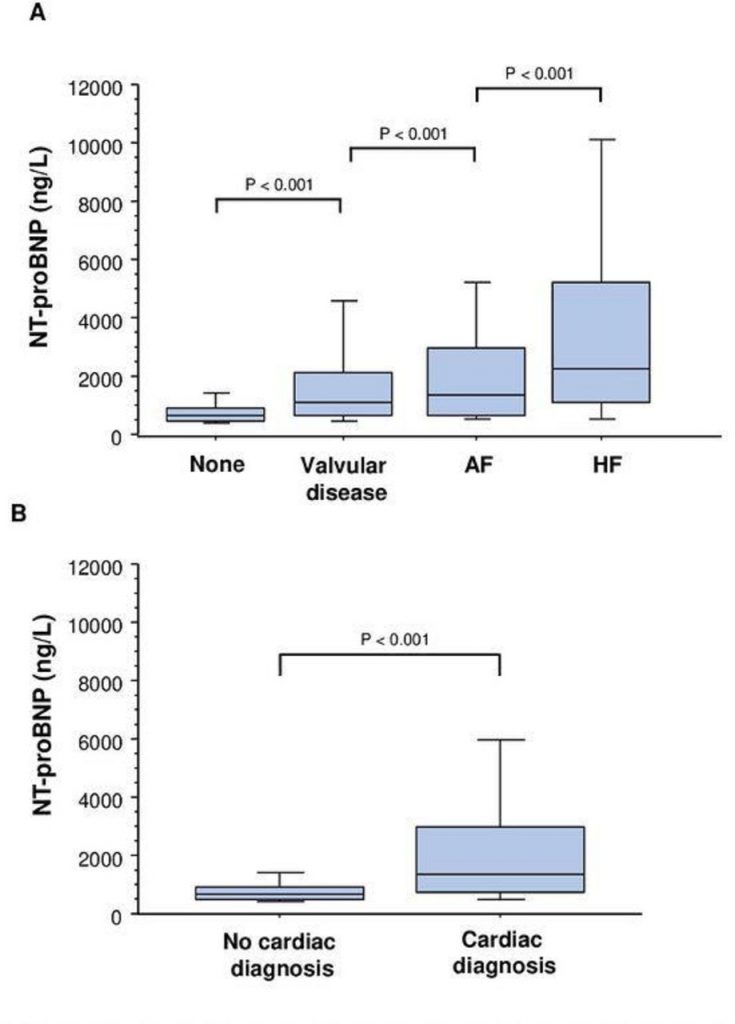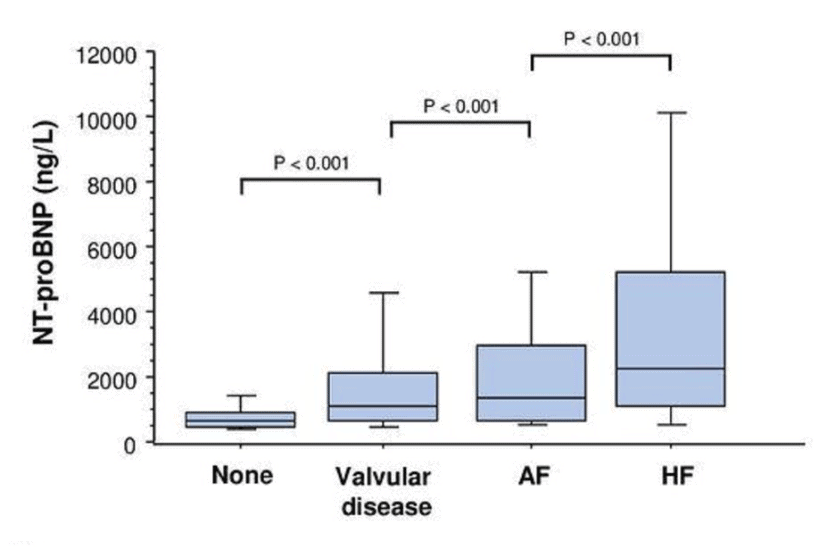By Dr. Jonathan Shurlock
Edited by Dr. Ahmed El-Medany
An interesting study in BMJ Open Heart has explored the diagnostic yield of a regional heart failure referral pathway at Queen Elizabeth Hospital in Birmingham. Dr Abbasin Zegard and colleagues have explored the utility of the N-terminal pro-brain natriuretic peptide (NT-proBNP) blood test in this context.
The authors identified 654 consecutive patients referred to the local heart failure service from primary care, with a community NT-proBNP >400 ng/L (age: 78.5±9.72 years; 45.9% men). Of these individuals, a cardiac diagnosis was made in a majority of cases (85.9%). The most common diagnosis following assessment was valve disease (39.4%) followed by heart failure (29.2%) and atrial fibrillation (17.3%).
In multivariate analysis the test predicted HF with LVEF <40% (OR: 10.2, 95% CI: 5.63 to 18.3). NT-proBNP was a poor differentiator between the causes of cardiac disease. While the authors found that the highest levels of NT-proBNP were found in individuals with heart failure, there was a large overlap in values between conditions.

The study did not include the clinical details of those referred, including presence or absence of heart failure symptoms, which is an important consideration of community referrals, particularly when attempting to assess the benefits and pitfalls of a referral pathway.
The key takeaway here is that a raised NT-proBNP is frequently suggestive of some form of cardiac pathology that requires further assessment and consideration beyond the sphere of heart failure.
Read more here:
Diagnostic yield of a heart failure referral pathway using N-terminal pro-brain natriuretic peptide
Zegard A, Naneishvili T, Viyapurapu R, Desai P, White S, Patel PA, Stegemann B, Zaphiriou A, Qiu T, Leyva F. Diagnostic yield of a heart failure referral pathway using N-terminal pro-brain natriuretic peptide. Open Heart. 2023 Oct 1;10(2):e002469.
https://openheart.bmj.com/content/10/2/e002469

